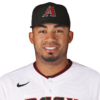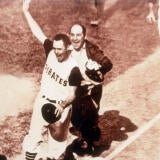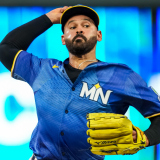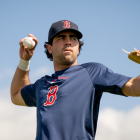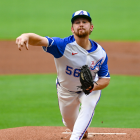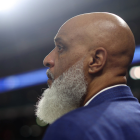NL Rookie of the Year Power Rankings: Corey Seager pulling away from the field
Corey Seager figures to win the NL Rookie of the Year award, but here's who is chasing him

Seven weeks remain in the 2016 Major League Baseball season, so while we've seen the majority of the season played, there's still a lot of baseball to go. It's a fun point to discuss how the individual awards races might shape up, so let's do that.
Before we dive in, let's point out that these aren't our predictions or even necessarily how we would vote. It's a snapshot of where things stand, and we're making subjective judgments on how the vote could turn out based on recent historical voting tendencies.
There's a clear leader in the race of the National League's Rookie of the Year award, and that's Dodgers shortstop Corey Seager. Still, the rest of the ballot is certain to inspire debate.
Everyone's favorite, and for good reason. Seager has been one of the most productive shortstops in baseball, as he leads the position in OPS+ and is fourth in home runs. That's good enough to earn the nod over Steven Matz. Seager also passes the individual test of rook shortstop showdown: He plays in a tougher hitting environment than Trevor Story, and has 100-plus more trips to the plate than Aledmys Diaz. Those differences matter, and highlight why Seager is the most deserving candidate in a talented shortstop class.
Mentioning the Rookie of the Year award in relation to a Dodger is nothing new, of course, since the franchise has employed 12 winners dating back to its move to Los Angeles. Predictably, Seager's numbers compare favorably to his freshman peers, as he ranks fifth in Dodgers' rookie hitter history in Baseball-Reference's version of WAR. Two of the players he trails -- the typo tandem of Jim Lefebvre and Mike Piazza -- won the award themselves. Seager figures to make it three of the top five.
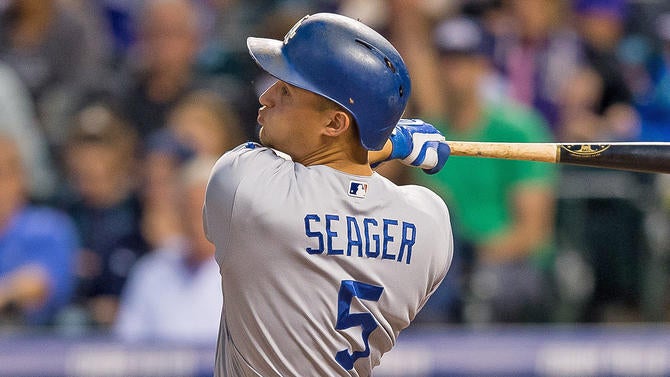
Mets fans hoping for the club's second Rookie of the Year winner in three years should take solace in knowing Steven Matz's runner-up status has less to do with his performance than Seager's. Heretofore, Matz's virginal effort has seen him post a 120 ERA+, good for fifth in franchise history among rookie seasons -- directly behind two fellers named Dwight Gooden and Tom Seaver. Not bad.
On the heels of a near no-hitter, it's fair to write that Matz has been a consistent bright spot on a team that hasn't had many -- and that he should remain a player worth watching for years to come.
Another rookie shortstop, Diaz took an unlikely path here. He was removed from the club's 40-man roster last year, having passed through waivers untouched. Some of that had to do with his contract -- unlike the other rookies presented here, he signed as an international free agent -- and some of that had to do with his declining stock.
Fortunately for the Cardinals, Diaz impressed while standing in for the injured Jhonny Peralta, hitting .312 with 14 home runs and 25 doubles. Unfortunately, for the Cardinals, Diaz fractured his thumb on July 31. It's unclear when or if he'll return this season.
Rockies hitters are, in general, difficult to place on these ballots. Obviously you don't want to ding them too much for their home ballpark, but it's hard to ignore their inflated raw numbers. Story, as such, could finish higher than if voters are impressed by the numbers (27 home runs, 120 OPS+) he produced before his season-ending thumb injury in late July. Essentially, we're saying Story could well leapfrog Diaz for third without it surprising us too much -- or he could not.
Batches of young hitters and pitchers come and go on these ballots every year. But 31-year-old journeymen? Those are rare. Junior Guerra has made the most of his opportunity and earns the nod over other accomplished freshman starters -- like Kenta Maeda, Jameson Taillon, and Tyler Anderson -- by virtue of having the second-highest ERA+ among rookie starters with triple-digit innings.
Remember, this is a guy who went years between MLB contracts. Crazy. Recent elbow inflammation aside, Lady Luck seems to like him these days -- and he probably likes her, too. A lot, actually.
Yes, I also see you: Kenta Maeda, Dodgers; Jameson Taillon, Pirates; Tyler Anderson, Rockies; Seung-hwan Oh, Cardinals.










